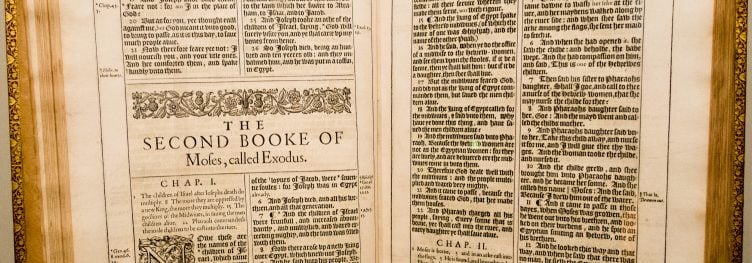Jeffrey Alan Miller, assistant professor of English at Montclair State University, was trying to determine what Bible translation translator Samuel Ward was using in one of Ward’s early 17th century notebooks. Soon Miller realised the notebook, previously described as “verse-by-verse biblical commentary” was actually part of Ward’s work as one of many KJV translators.
Miller summarises his research in the Times Literary Supplement:
It represents not just the earliest draft of the KJB now known to survive, but one utterly unlike any previously found. Ward’s draft alone bears all the signs of having been a first draft, just as it alone can be definitively said to be in the hand of one of the King James translators themselves. It also stands as the only draft now known to survive of any part of the Apocrypha in the KJB, and the only draft yet to be discovered in Cambridge, one of the three initial centres of the Bible’s composition. The true value of Ward’s draft, though, lies less in the sheer fact of its uniqueness, and more in what the draft, in its uniqueness, helps to reveal about one of the seventeenth century’s most extraordinary cultural achievements. It points the way to a fuller, more complex understanding than ever before of the process by which the KJB, the most widely read work in English of all time, came to be.
Miller says, via the New York Times:
“There’s a strong desire to see the King James Bible as a uniform object, and a belief that it’s great because of its collaborative nature,” Professor Miller said.
“It was incredibly collaborative,” he continued. “But it was done in a much more complicated, nuanced, and at times individualistic way than we’ve ever really had good evidence to believe.”
